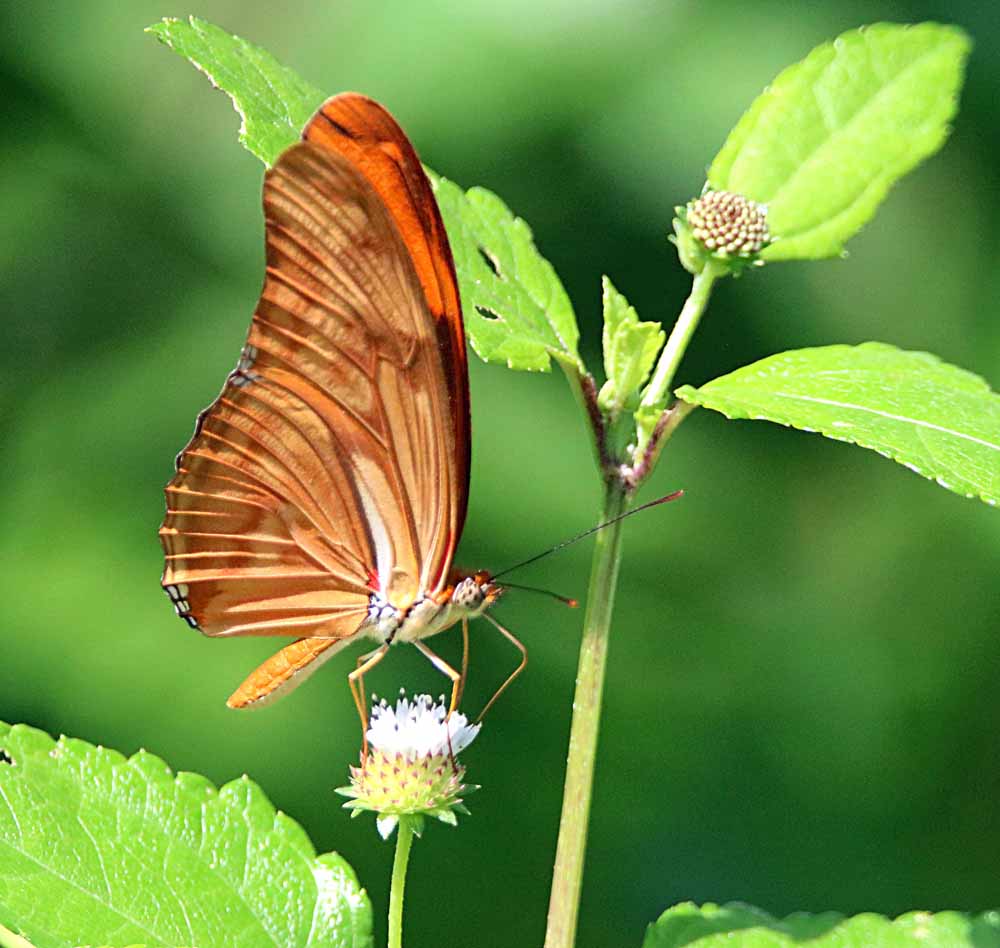
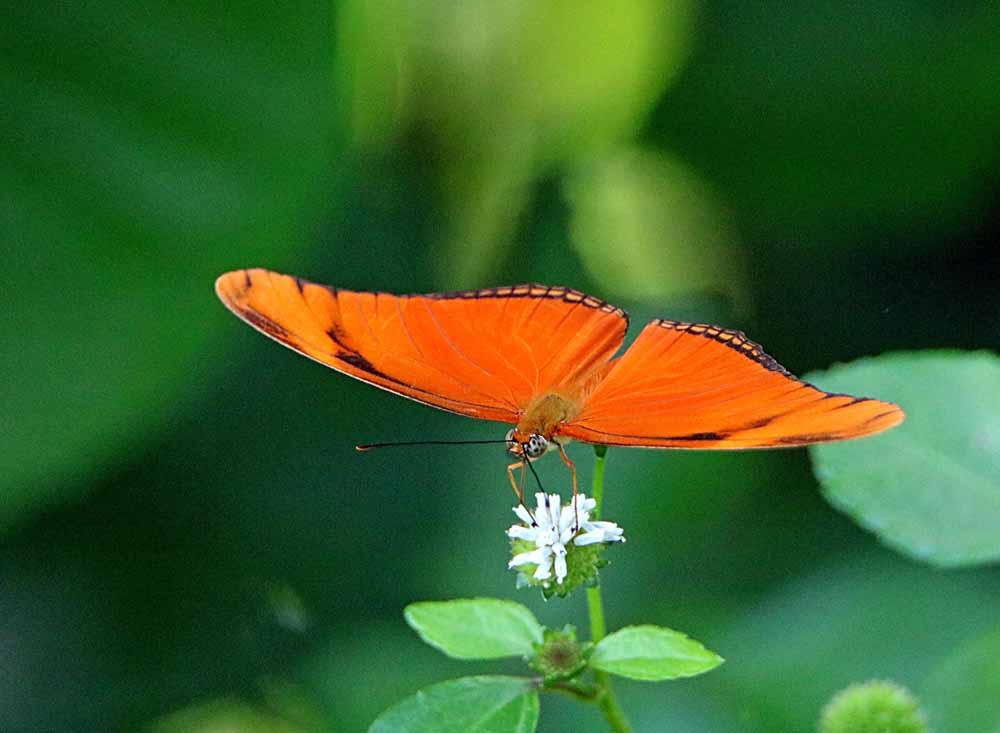
This is one of my favorite butterfly species and I keep finding them almost everywhere I go in Costa Rica. See more of my photos of this beauty in my gallery: Julia Heliconian, Dryas julia.
¡Pura Vida!


This is one of my favorite butterfly species and I keep finding them almost everywhere I go in Costa Rica. See more of my photos of this beauty in my gallery: Julia Heliconian, Dryas julia.
¡Pura Vida!
All natural beaches around the world have driftwood, which usually changes during every tropical storm or other reason for big surf! 🙂 The exception is a rare few beaches near big rich corporate hotels that have driftwood removed to maintain their “pristine” beaches. 🙂
This particular piece of driftwood was on Playa Negra (“Black Beach,” named for the dark volcanic sand there) directly behind Hotel Banana Azul in Puerto Viejo and is more like a simple log, partially buried, but it had a nice glow in the early morning sunrise last Saturday along with the color and texture. Of course there are more interesting shapes of driftwood, usually older and often sun-bleached to a light gray, nearly white.
In some coastal towns people display large, unusually shaped pieces of driftwood as works of art in their homes, restaurants and other businesses, both here and in every other coastal area I’ve visited around the world. See the driftwood links below these 2 photos . . .
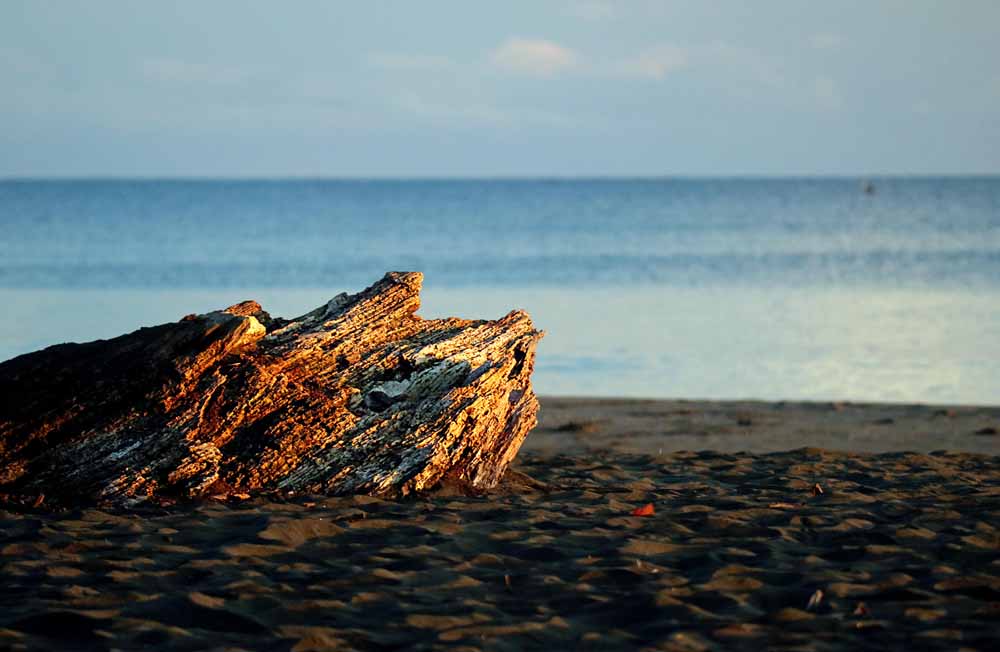
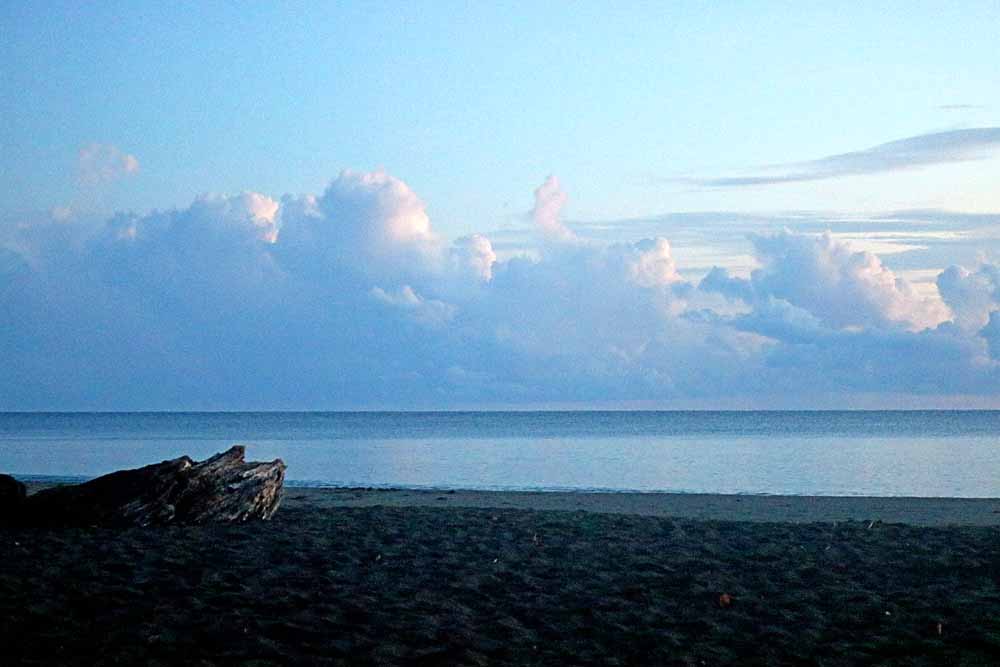
Here’s some driftwood-related websites I found online:
¡Pura Vida!
. . . for reasons unknown to me. Normally I see a lot of these Brown Pelicans, Pelecanus occidentalis (my gallery link) on both coasts and usually every day there, but these were the only ones I saw this time and I was a good distance from them, walking on the beach road, so not great photos or close-up like you can see in my gallery linked above. Here’s two shots and I cropped in on the second one just to make them seem bigger, but certainly not my best images. 🙂
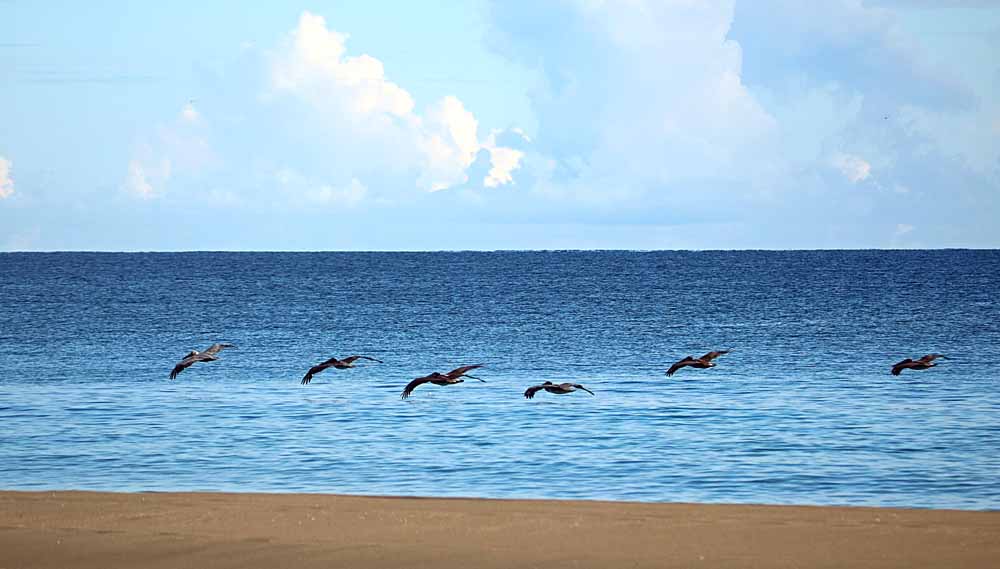
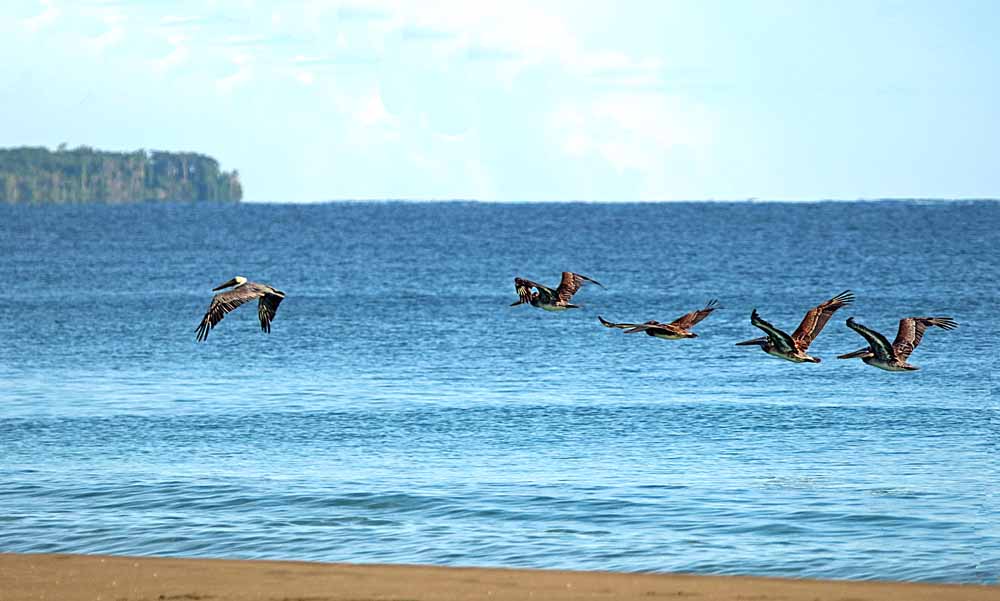
¡Pura Vida!
One of those many colorful and beautiful butterflies in Costa Rica is the Crimson Patch, Chlosyne janais (linked to my gallery). It is found from Colombia north through Central America and Mexico to South Texas. Here’s two views of one on the beach road near Hotel Banana Azul last week . . .
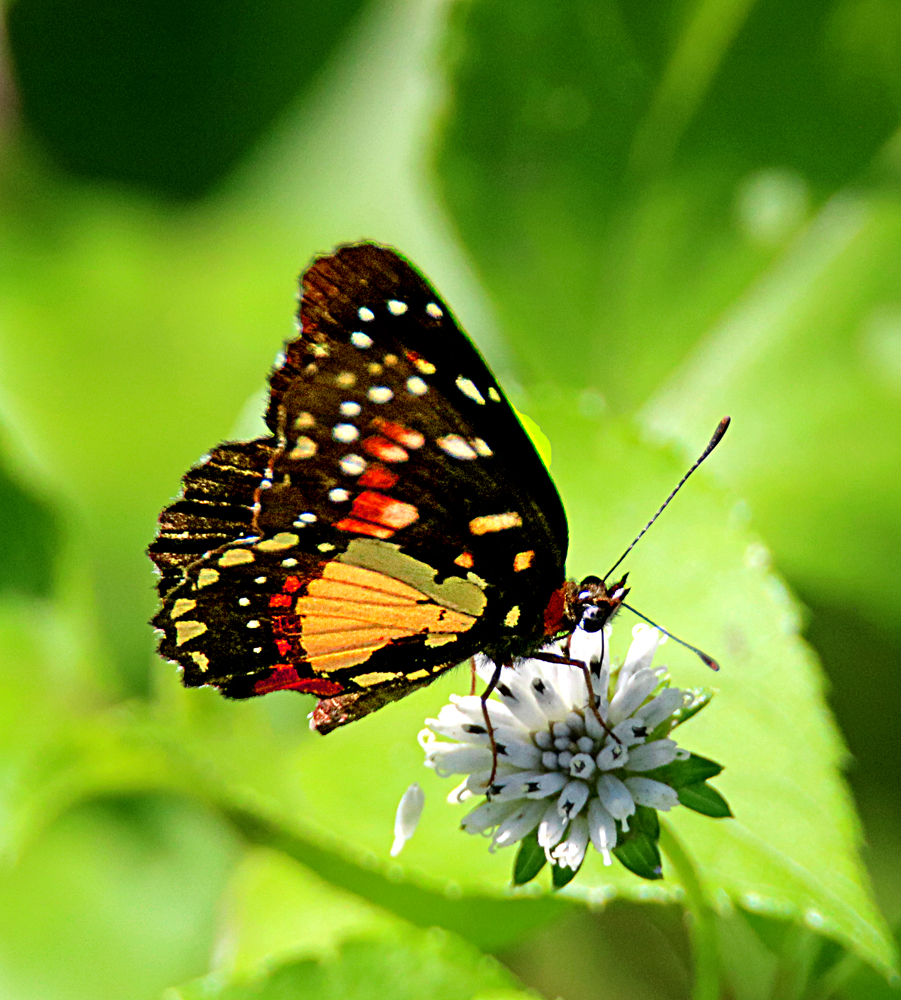
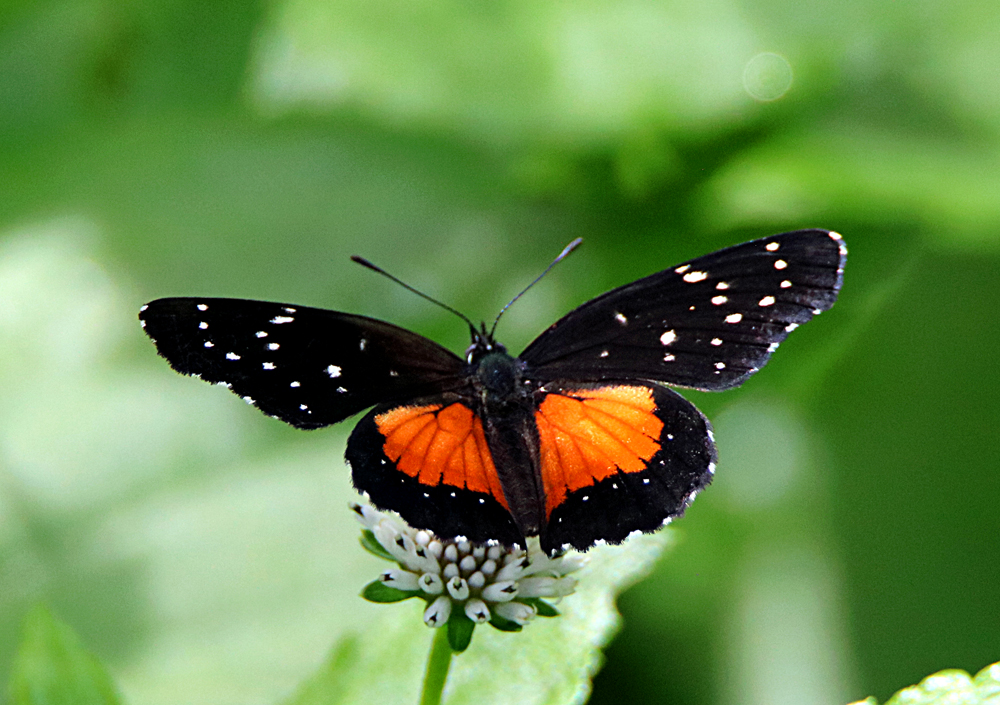
¡Pura Vida!
Yesterday morning, just before leaving the Caribe, I was excited to have photographed two different hawks, one, I knew for sure, was a Common Black Hawk, Buteogallus anthracinus (my gallery link), but I had to wait until later to identify the brown one. Well, I should have known! But just haven’t been photographing many birds for a long time and didn’t remember that the juvenile Black Hawk is brown & speckled like this.
They were about 50+ meters apart, but both along the beach road, and I’m guessing that the adult was his Mom or Dad (probably Mom) and she seems to be holding something in her claw, like some food in case Junior doesn’t catch his breakfast in the marshy woods. 🙂 That is just like some of these Costa Rican moms who spoil their sons! 🙂 Here’s pix of Mom (or Dad) first and then the son (or daughter) . . .
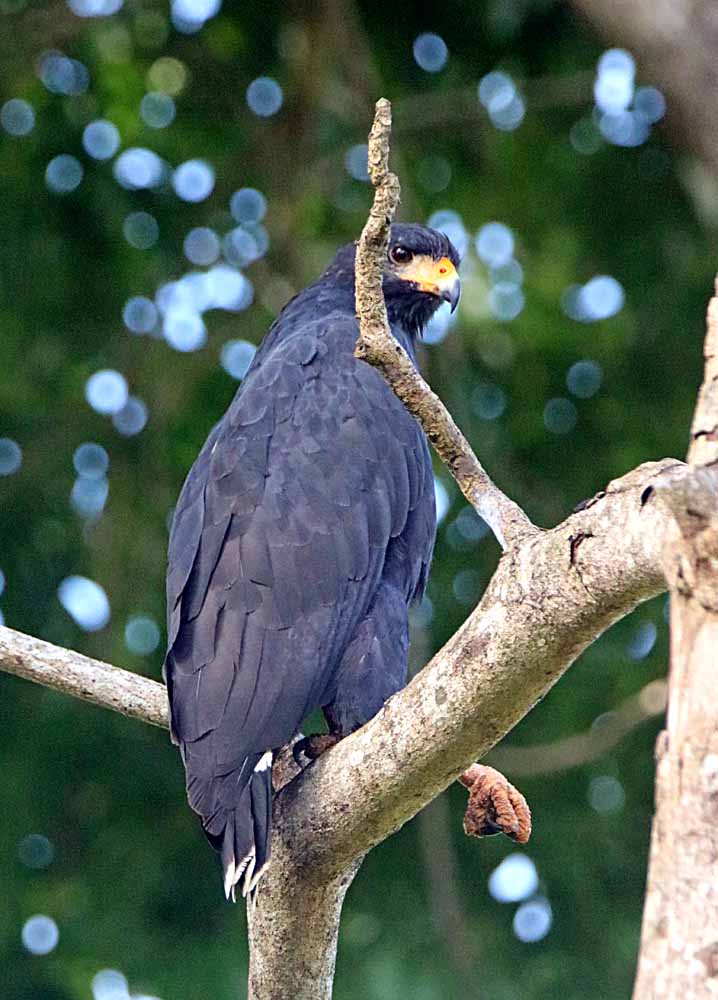
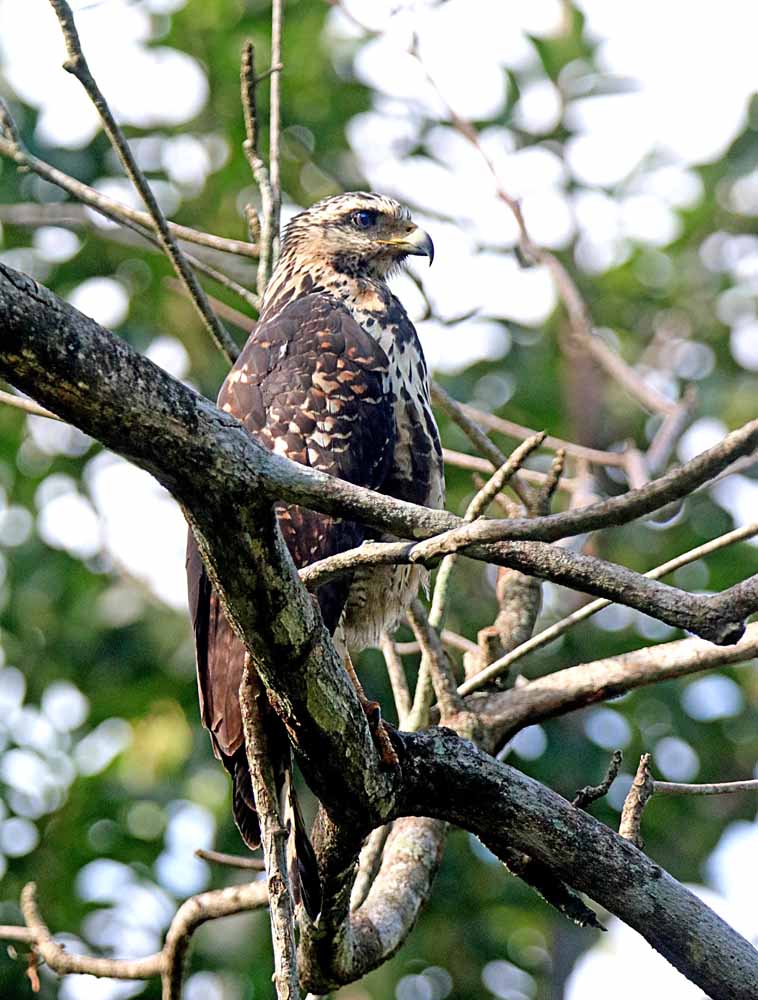
¡Pura Vida!
Back in 2014 when I took the “Live in costa Rica Tour,” one of the other participants, John, was the only other one of us from Tennessee and on top of that, from Williamson County, a suburb of Nashville where I had lived more than 30 years, but we never knew each other back then (different circles of friends). He earns his income from rental property in Tennessee and the Dominican Republic and wanted some here too, before retiring and moving here. The time has come!
He later came here and stayed at my house while looking at income-producing rental properties to buy and I even went to one beach area with him to check out getting one there too, but he decided no (too expensive!), though he did buy a condo here in Atenas very near Roca Verde where I live. It stayed rented until he recently sold it and bought a house up the hill from me here in Roca Verde that he is going to “fix up” and move here with his wife and two kids. Soon, he hopes!
They all arrived yesterday from Nashville and are staying in Hotel Colinas del Sol, just 3 blocks from me! So I’m going down there to have breakfast with them this morning, answering a lot of questions, talking to their kids about nature spots here, etc. 🙂
They will of course visit their future home, but also must meet with a lawyer in San Jose on their residency paperwork and work with someone on the remodeling of the house, plus many other nitty-gritty things for such a life change! 🙂
A busy week for them and it happens to be a busy day today for me with breakfast at 7, my spanish class at 9, grocery shopping, then work on tomorrow’s blog post! Plus continue to process hundreds of photos from the Caribe Sur trip! So I can share with you! 🙂
¡Pura Vida!
I still haven’t processed all my photos from today and will get a few more in the morning before I leave, but I’m pleased to get a different bird and butterfly from all the other days here . . .
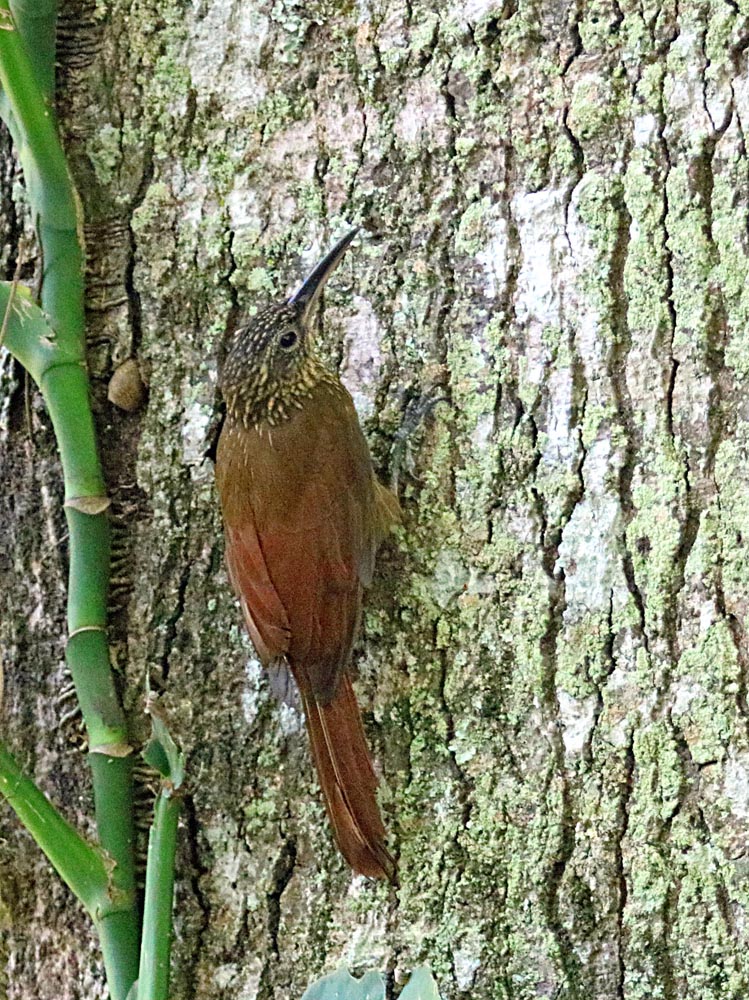
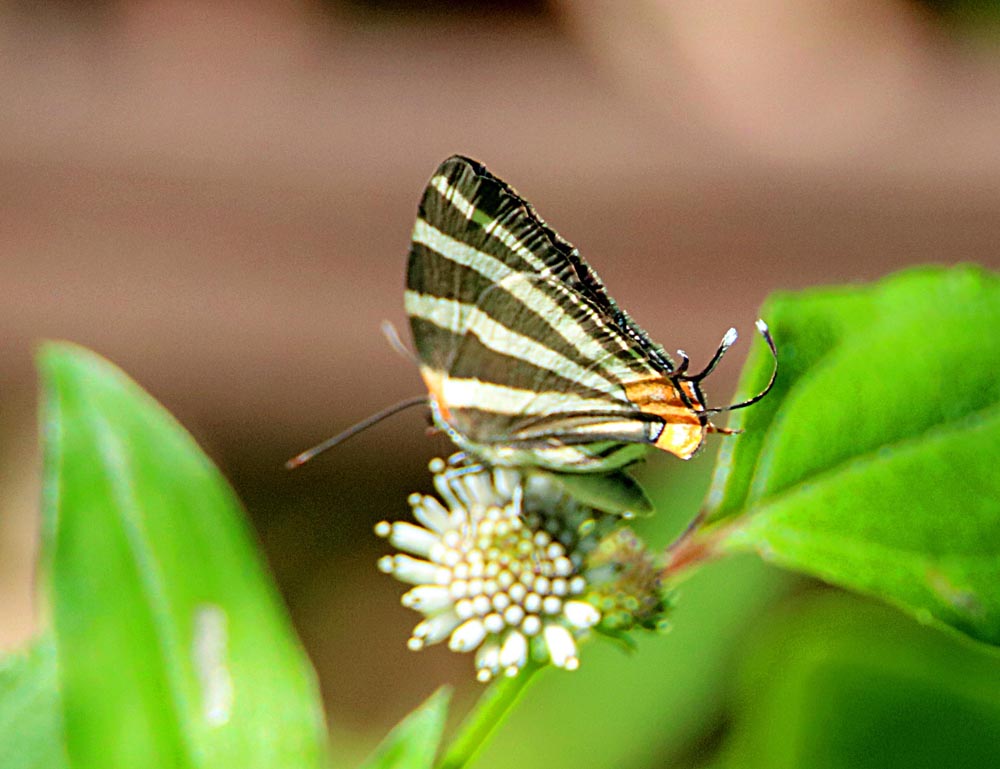
And one of many shots of sunrise this morning that I haven’t all processed, but will eventually share more, including the throng of local people out at sunrise on Saturday morning! 🙂
Continue reading “New Bird & Butterfly on Final Day”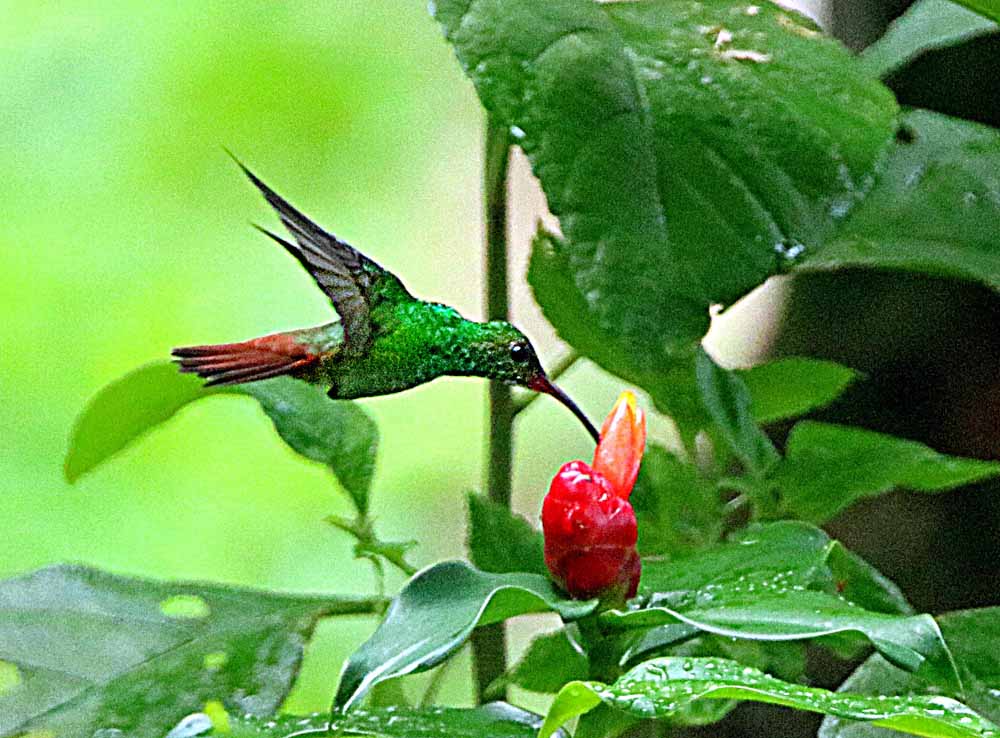
Because of some pains that make walking difficult, I’m limiting myself to short walks down the beach road (one lane, dirt) and of course the hotel gardens instead of longer hikes in the nearby national park and separate wildlife refuge. I’m up to 15 species of birds now, just right here! And I don’t know how many butterflies because I haven’t processed those photos from today, but know that I got some new ones again! One of the beach road joys is watching wild hummingbirds – they are all wild, including those in my garden at home! 🙂 And like at home, the Rufous-tailed seems to be the dominant hummingbird here too! 🙂 Here’s just two shots for now and more will be in the trip gallery later.
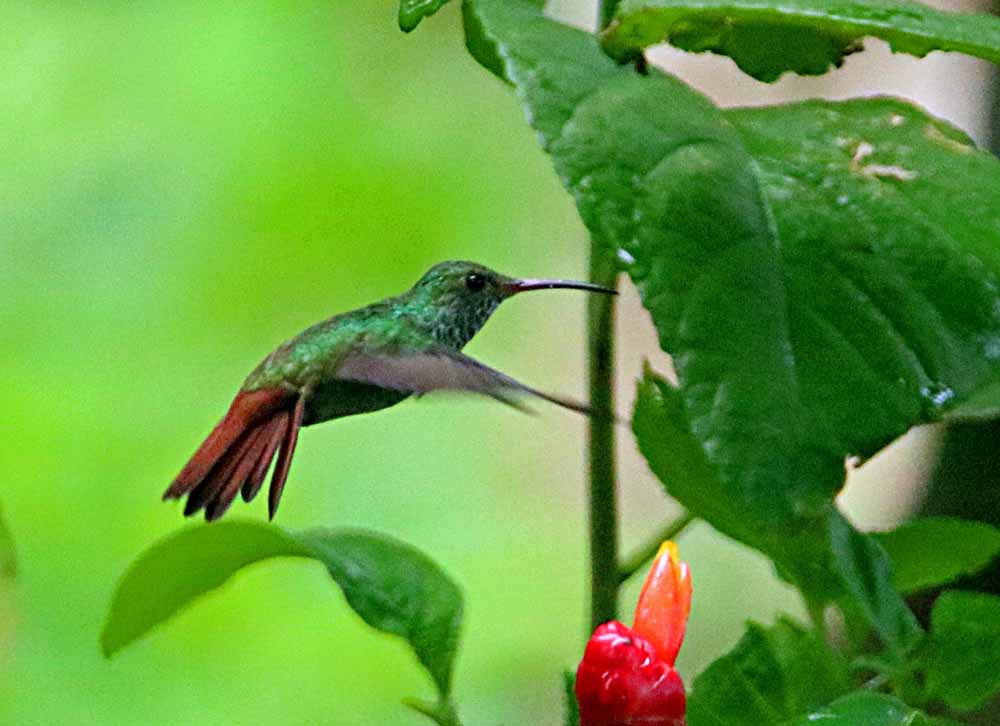
¡Pura Vida!
There’s color and action wherever the sun rises, and so just two shots of the clouds and one of the water here with other variations in my Friday Sunrise Gallery, ,including a girl making a sunrise selfie, but my favorite is the blue water pix below. 🙂
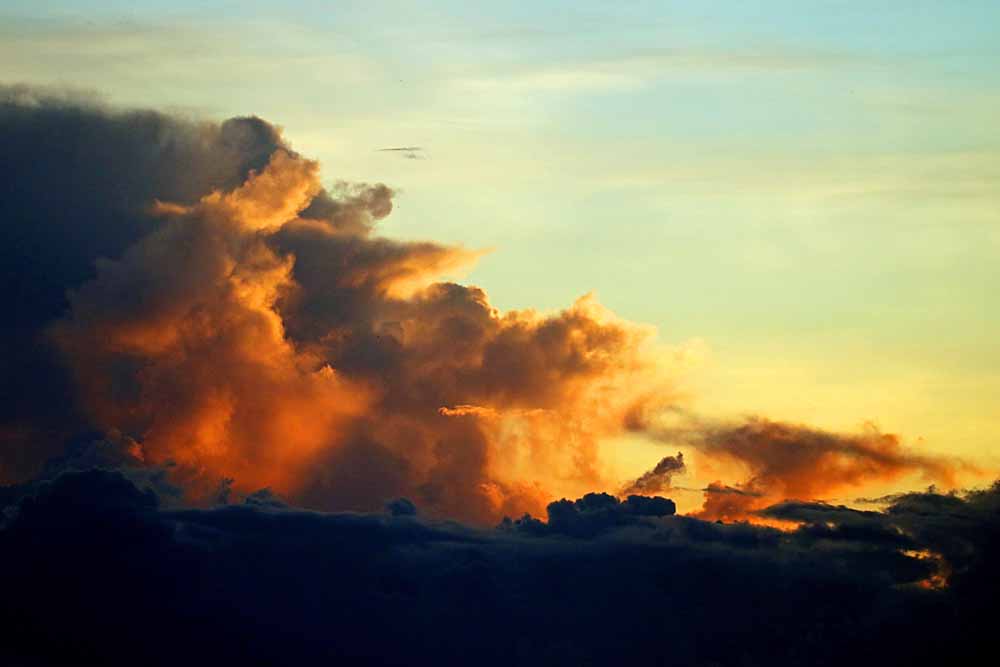
And another lovely sunrise! The two new birds are called “lifers” by birders, while the one new butterfly species is just generally called a new species! 🙂 And it is my favorite! The two new birds were identified by Merlin for the sake of any birders reading. 🙂 After I submit them to eBird, they will be reviewed and someone will notify me if they think misidentified. 🙂 The markings on both of these two birds are similar though their body builds are different and a tan color with white wing stripes is common to many species as is the white eye ring, but I’m trusting Merlin on these. 🙂 I’m now up to 10 bird species on this trip and 6 butterfly species, with there simply not being as many butterflies here this year or in October compared to my usual September trip. But I’m happy with what I’m getting and the sunrises alone are worth the trip, though I do miss hiking in Gandoca-Manzanillo & Cahuita! “Being old is not for sissies!” 🙂
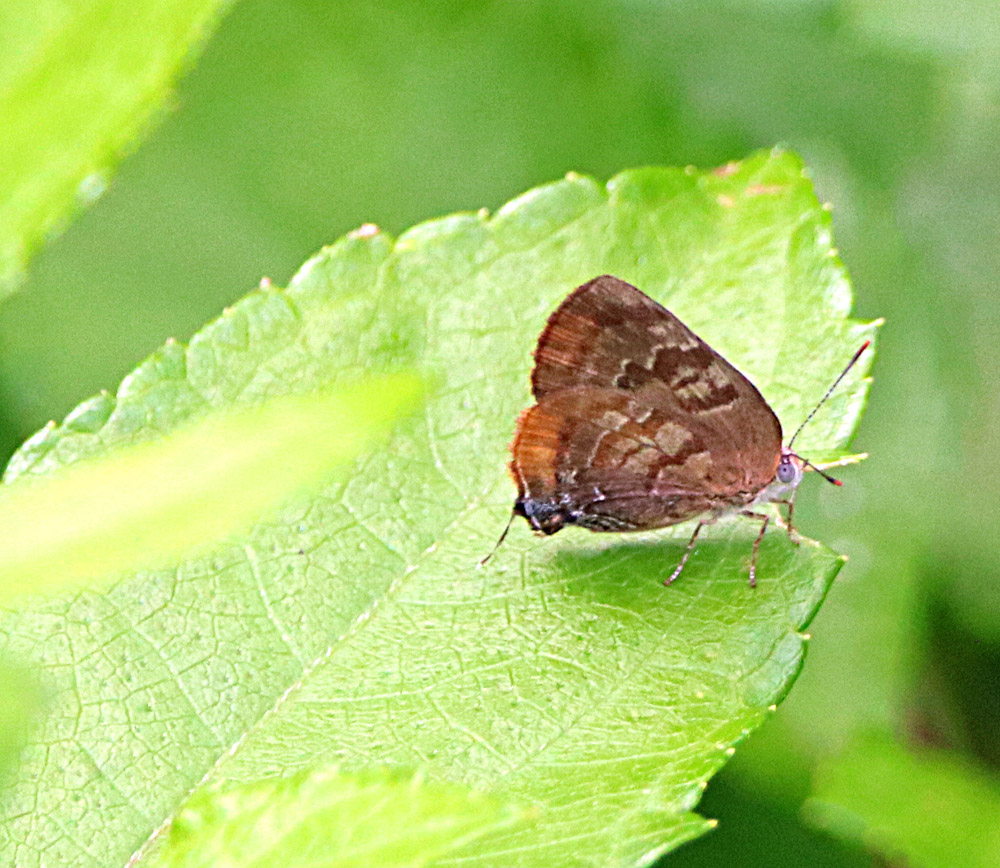
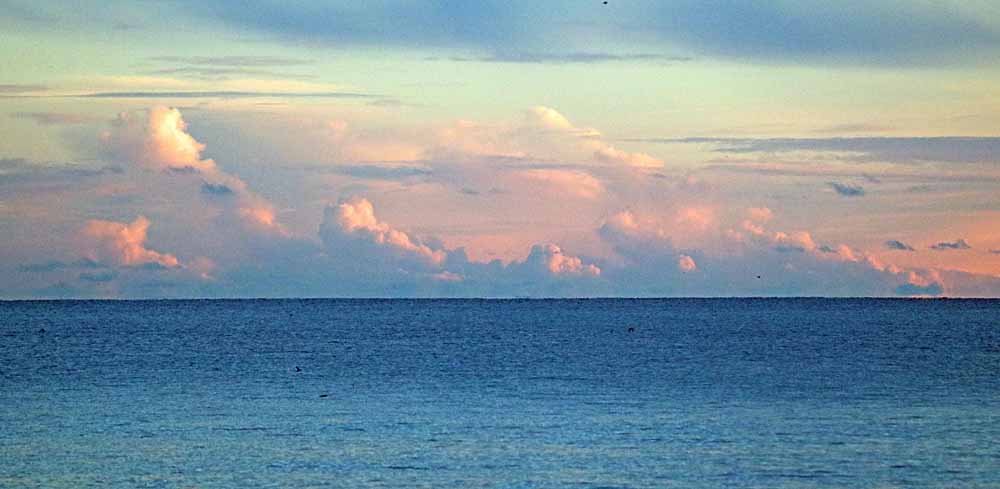
No two are alike and none disappoint me! 🙂 And they may be the highlights of my time here this year as my aches and pains are keeping the beach road walks short and have caused me to cancel my planned hikes in the two national parks nearby. But the hotel manager said he would take me to the end of the beach road in his car tomorrow morning. 🙂 This morning’s short walk on the beach road gave me very few bird or butterfly photos, which I will share in another blog post tonight. Here’s a slide show of 8 sunrise shots from this morning (no 2 of them alike either!) and I will be sharing more from each morning plus non-blog photos will be in a gallery later.
¡Pura Vida!